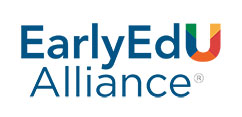Pennsylvania Child Development Associate Credential Prep
Pennsylvania Child Development Associate Credential Prep

Tugce B. Arda Tuncdemir taught for three years at Lock Haven University—part of the Commonwealth University of Pennsylvania—where she helped prepare students for the child development associate (CDA) credential. Her students were young. Many recently graduated high school. Others were older, seasoned early childhood educators who were seeking the CDA to become center directors or to seek grants and other funding. All her students already worked in early childhood environments.
Tuncdemir connected with the EarlyEdU Alliance early in her time at Lock Haven and taught three EarlyEdU courses there. She used them with students pursuing one of two pathways: infant/toddler and preschool.
In 2023, Tuncdemir moved to Pennsylvania State University Harrisburg as assistant professor of early childhood and elementary education. At Penn State, she works with a more traditional community of undergraduates who are pursuing bachelor’s degrees in elementary education and children development. Most are aged 18 to 32, and they are not currently working as early childhood educators. They require a different approach to teacher preparation and a different mix of courses from Tuncdemir’s Lock Haven students.
Nonetheless, when she moved to Penn State, Tuncdemir took EarlyEdU courses and related materials with her.
The EarlyEdU Alliance membership and license agreements allow faculty to take the courses and materials with them if they move to a different school. The faculty, not the schools, hold the licenses to use the courses. They can teach the courses through Canvas or their institution’s learning management system. Faculty agree to use most or all of a course to ensure it is being used with fidelity. But the licensing arrangement allows faculty to adapt material to meet local and state requirements and pace the material to suit their students.
At Lock Haven, Tuncdemir found the EarlyEdU approach to be an ideal fit for students already working in the field. She says that the Intentional Teaching Framework, which emphasizes students’ review and reflection of their own interactions with children, shows that “the teachers really need to see themselves.” Through such reflection, “they find their inner power—the teaching power inside,” and they recognize that “they can learn and teach at the same time.”
Adapting EarlyEdU materials to her Penn State students, who cannot record their interactions with children because they did not work in classrooms, has required some significant alignment and adjustments, Tuncdemir says. The Penn State students are mostly seeking careers with children in preschool through grade 4 —an older cohort of children than those the Lock Haven students are teaching. Most are preparing the groundwork for careers in the state’s public school system. “I needed to add content related to elementary education and elementary child development.”
But she has managed to make it all work. If she cannot record students’ interactions during field placements, she has found she can still use the articles, sources, YouTube links, course assignments, and quizzes that come with the EarlyEdU package. At Penn State, she continues to use the EarlyEdU media library.
The practicality and portability of EarlyEdU materials are there by design. Tuncdemir points out that EarlyEdU courses are aligned with National Association for the Education of Young Children (NAEYC) and Pennsylvania Department of Education early learning standards. They also can adapt for different education systems and regulatory environments.
Lock Haven is still using EarlyEdU courses for its CDA program. Tuncdemir says the connection with EarlyEdU—across two very different academic environments—continues to provide valuable ideas and frameworks. “These resources help me enrich the curriculum, providing students with high-quality, research-based information and practical insights,” she says. Tuncdemir credits the flexible and comprehensive approach of the materials for their applicability to teacher preparation for the full range of early childhood education.
And she adds that EarlyEdU materials have been a key source of inspiration for her: “The valuable content and pedagogical approaches will continue to influence and enhance my teaching.”
EarlyEdU Courses in Action
Learn more about the EarlyEdU courses at Lock Haven University
